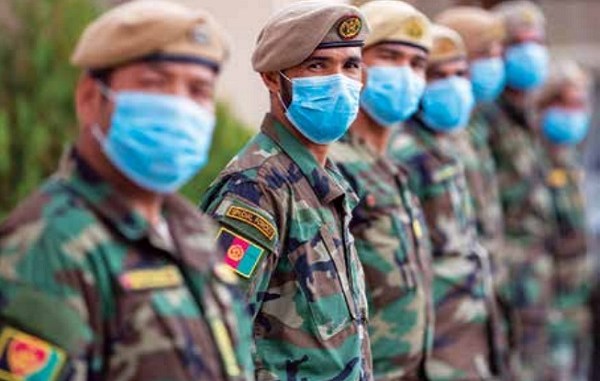
The Special Inspector General for Afghanistan Reconstruction (SIGAR) has published its July 2020 Quarterly Report to the United States Congress. The 231-page PDF summarizes SIGAR’s oversight work and provides updates in four major areas of reconstruction efforts in Afghanistan from April 1 to June 30, 2020.
Some of the major findings of the report:
- The last quarter has been a challenging time for the Afghan security forces due to the implementation of the U.S.-Taliban agreement, contested presidential election results, insecurity, Taliban attacks, and COVID-19.
- Enemy violence was well above historic norms this quarter.
- The Taliban conducted no attacks against Coalition forces.
- The Taliban and al-Qaeda relationship remains ‘close’.
- COVID-19 testing in Afghanistan is limited – the International Rescue Committee says that Afghanistan is facing a “humanitarian disaster”.
- The Afghan government’s sustainable domestic revenues contracted by 23% over the first six months of 2020.
- ANDSF casualties remain high. The Taliban have been attacking static checkpoints manned by the Afghan security forces.
‘Ghost Soldiers’. One of the enduring problems of developing a professional army and police force in Afghanistan is that of soldiers and policemen who do not report for duty. For years, the United States government has been paying the salaries of soldiers, police, teachers, doctors, and other civil servants who do not exist. SIGAR has found that U.S. and Afghan authorities can not verify the accuracy of the ANDSF personnel data or payroll systems. An attempt to solve this problem through an integrated electronic system – the Afghan Personnel and Pay System (APPS) – has taken a long time and still is fraught with inaccurate data.
Political Impasse Resolved. President Ashraf Ghani and his rival – former Chief Executive Abdullah Abdullah – reached an agreement on power sharing in mid-May. A months long impasse had elapsed over the results of the September 2019 presidential election.
U.S. Withdrawal. The agreement between the U.S. and the Taliban reached in February 2020 included a provision that the U.S. would be down to 8,600 military personnel in Afghanistan before mid-July. Five former American bases were handed over to the Afghan government. The full withdrawal of U.S. forces from Afghanistan is “conditions-bases” – dependent on the Taliban meeting their commitments in the agreement.
Advising Efforts and COVID-19. The pandemic has impacted ANDSF progress in many strategic areas including logistics, oversight of construction projects, and delays in integrating the Afghan Local Police into other parts of the security forces. Resolute Support advisors are conducting limited face-to-face advising with their Afghan counterparts. Advisory efforts have shifted to video-conferences, email, phone calls, and other types of remote communication.
ASSF. The Afghan Special Security Forces remain the ANDSF’s primary offensive force. The ASSF includes the Afghan National Army Special Operations Corps (ANASOC), the General Command Police Special Units (GCPSU), and the Special Mission Wing (SMW). ASSF elements have nearly doubled in size since 2017. The misuse of ASSF elements continues to be a problem – diverting the elite units to missions better suited for the conventional units of the ANDSF. Some ASSF elements are being used to man static checkpoints, hold terrain, or provide personal security for politicians or ANDSF leaders.
The SIGAR report remains one of the more trusted periodic reports about conditions in Afghanistan. The SIGAR office is independent of the U.S. Department of Defense – as it works for the U.S. Congress. It does rely on the cooperation of and data provided by United States Forces – Afghanistan (USFOR-A) and NATO’s Resolute Support Mission (RSM).
**********
Quarterly Report to the United States Congress, Special Inspector General for Afghanistan Reconstruction, July 30, 2020, PDF, 231 pages.
https://www.sigar.mil/pdf/quarterlyreports/2020-07-30qr.pdf
Photo: ANA commandos stand in formation before meeting Acting Minister of Defense Khalid and RS Command General Miller on April 28, 2020. From SIGAR report cited above. (U.S. Army Reserve photo).